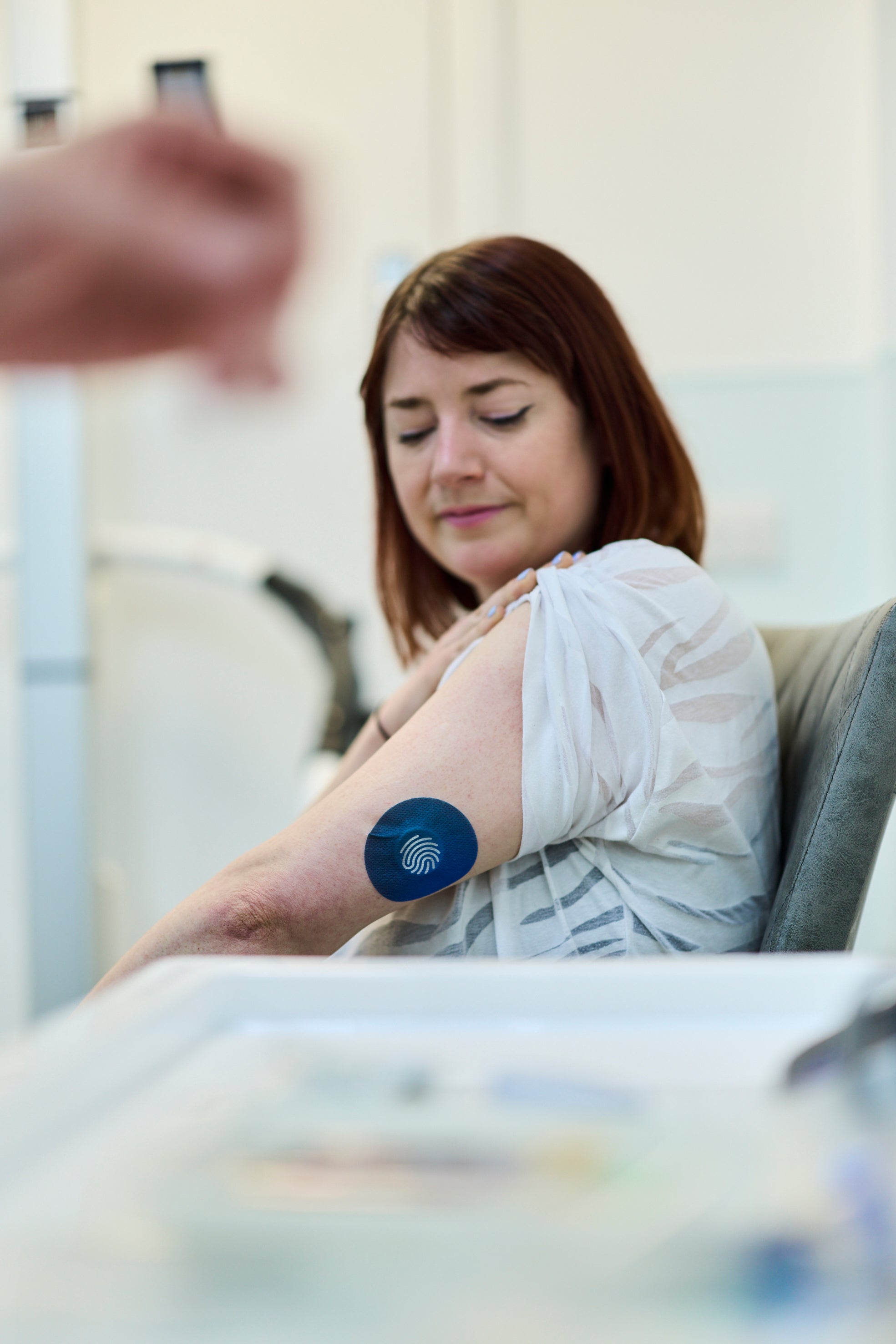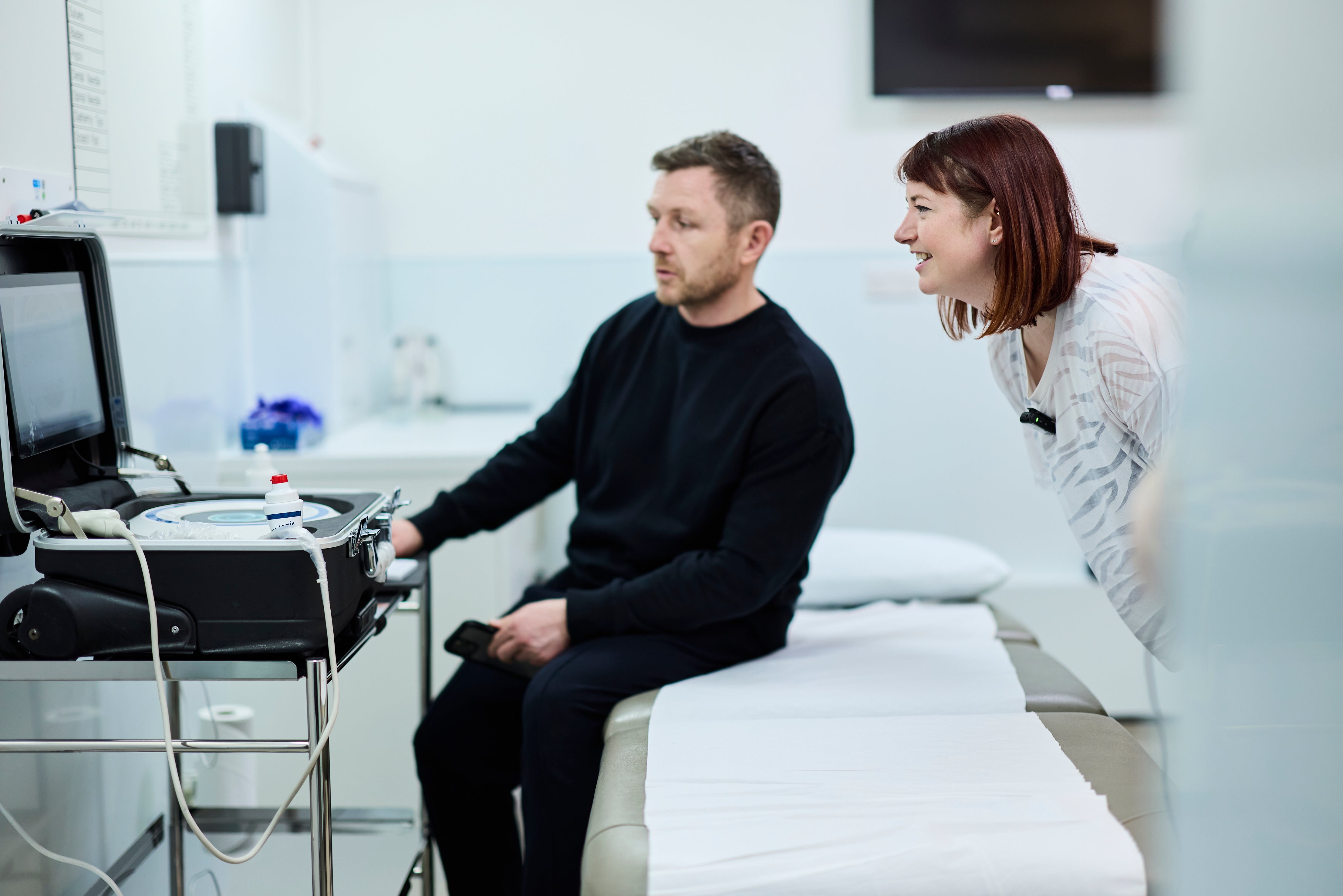ARTICLE AD BOX
I always suspected, deep down, that there was something wrong with me. Now, I have proof.
As the shock subsides, I start thinking about how to tell my loved ones. How to break it to them that I have… what was it again? I scroll back through the intimidating 36 pages of blood test results on my screen. Ah yes. “High ferritin levels.”
I might not have known what ferritin was two minutes ago, but a quick consultation with Doctor Google revealed that high levels of it can be caused by iron overload, inflammation, liver disease or – as with every symptom you type into an internet search engine – cancer.
It gets worse. My pancreatic amylase and lipase levels, whatever they are, came out “extremely high”. More googling reveals that elevated lipase levels may “be observed in pancreatitis, peptic ulcer disease, inflammatory bowel disease, alcoholism, kidney or liver disease” and – you guessed it – “pancreatic or stomach cancer.”
I start fantasising about my funeral, Amelie-style; “Gone too soon” will be the uniting cry from the swelling crowds of wailing, inconsolable mourners. Just as I start fleshing out the scene, complete with potential eulogists, a Zoom reminder pops up for my consultation with Dr Philip Borg from the Longevity Doctor clinic. Poor guy; I don’t envy him the task of informing people that their days are numbered. But I’m determined to be stoic in the face of tragedy.
I click on the link and Dr Borg’s smiling face appears. “Hi Helen!” he says brightly – a little too brightly for a man about to deliver crushing, life-changing news. “How are you?”
How am I? Dear God, man – I have high ferritin, pancreatic amylase and lipase levels! How do you think I am?? I smile wanly, waiting for the axe to fall.
“So, I’ve gone through all your results, and you’re generally doing really well,” he says breezily. Wait, what?

“There are no major concerns with your biomarkers and you’re making healthy lifestyle choices.” I mentally cancel the funeral caterers. “And your insulin sensitivity is the best I’ve seen in a while.” I stop adding songs to the memorial playlist.
“What about my ferritin levels?” I ask tentatively, not daring to hope just yet. Dr Borg remains monumentally unfazed. “Oh, we’d only be worried about that if you had other symptoms.” Hmm. Perhaps I had been just the teeniest bit melodramatic.
The reason for getting a comprehensive set of medical tests done wasn’t due to anything being ostensibly wrong with me – far from it. Rather, I’d been offered a consultation a few weeks prior to see for myself what the hottest new health and wellness trend – “longevity medicine” – was all about.
The concepts of “longevity” and biological anti-ageing have garnered increasing amounts of interest over the past few years, with proponents like Canadian-American researcher Peter Attia acquiring more than a million Instagram followers and comedian Katherine Ryan launching her own new podcast, What’s My Age Again?, dedicated to exploring celebrity guests’ biological ages. For many of us, the idea immediately conjures up an image of Bryan Johnson: the eerily pale and waxen-looking tech billionaire dedicating his life (and considerable finances) to reversing the ageing process. The 47-year-old’s Benjamin Button-style quest to “hack” his body and turn back the biological clock has captured global attention for its sheer awfulness – the man takes more than 100 pills a day and has been injected with his own teenage son’s plasma.
We have, in theory, far more control over the ageing process than we might think
Yet longevity isn’t, claim its more mainstream advocates, just for the 0.1 per cent – nor is it a “trend” or “fad”. It’s a proactive and personal approach to health that focuses on extending lifespan and improving quality of life by implementing early interventions tailored to the individual. Longevity research suggests that genes only account for a fairly small proportion of differences in the lifespans of identical twins (20-30 per cent); epigenetics, which refers to the way our genes are expressed based on environmental and lifestyle factors, is increasingly thought to play a bigger role. It means that we have, in theory, far more control over the ageing process than we might think.
Longevity medicine is inherently “preventive”, too. The theory goes that if you can test for and catch risk factors for issues like heart disease, cancer and dementia early enough, and make lifestyle changes to suit – rather than having to be “reactive” because you’ve already fallen ill – you can markedly improve your chances of living well for longer. Think the old adage “prevention is better than cure”, all wrapped up in glitzy wellness-speak and space-age science.
Even the UK government has acknowledged the benefits; a Department of Health and Social Care report published in May last year estimated that “applying known, evidence-based preventative interventions earlier and more broadly could add 20 more healthy days per person, per year, in the UK” – a 33 per cent reduction in ill health – which could unlock “a $401bn (around £320bn) rise in GDP over 20 years”.

It’s with all this in mind that I present myself at the Longevity Doctor, a new enterprise on London’s Harley Street, ready to experience the most thorough biological assessment I will likely ever undergo. I’m sampling the “blue package”, the cheapest option available – although even this will set you back a cool £6,000.
First up, blood samples will be taken and tested for… well, you name it. They’ll be analysed for over 150 biomarkers, including liver function and hormone profile. My finger is also pricked before being squeezed and dabbed until the blood fills a circle just bigger than a 2p-piece. Though it feels rather like daubing a gruesome Jackson Pollock, this is in fact, the Trudiagnostic Biological Age test. Unlike my chronological age – currently 38 years old – my biological age is an indication of the “true” age of my body, based on analyses of dozens of proteins, metabolites and clinical biomarkers to predict how fast I’m ageing on a cellular level.
I’m also weighed, given a full body composition scan and set up with a glucose monitor on my upper arm to check insulin resistance for the next two weeks, before my bones are scanned at the spine and hip to determine density, quality and fracture risk.
Biological age is not the be-all and end-all – it’s part of a much bigger picture
Dr Philip Borg
Next up, it’s time to meet Philip Borg, the Longevity Doctor himself, whose expertise makes this “London’s first and only clinic led by a certified anti-ageing physician”. Very much unlike Bryan Johnson, Dr Borg genuinely looks the picture of health, blessed with glowing, tanned skin, an air of deep calm and, in all likelihood, the spleen of a 25-year-old. Despite all the weird science that frequently makes headlines when it comes to longevity, there’s no suggestion of snake oil here. Dr Borg is actually an NHS consultant alongside his private practice specialism, and stresses that the clinic has committed to using only tests and treatments backed by the most robust medical evidence.
During our consultation, which can last up to an hour (the luxury!), Dr Borg asks about the expected topics – health conditions, family medical history, my diet and alcohol consumption – but also less expected ones.
“What’s your family setup?” he asks. “Are they supportive? Are you close?”
“Yes, definitely,” I answer, wondering what he’s driving at.
“That’s good. Loneliness is one of the biggest predictors of ill health and early death.” In fact, studies have shown that chronic loneliness can have similar mortality risks to smoking 15 cigarettes a day, as well as doubling your risk of developing Alzheimer’s disease (AD).

He also asks if I’m often exposed to loud noise, as this has been linked to health issues, and quizzes me about my oral health; gum disease increases the risk of cardiovascular disease, high blood pressure and type 2 diabetes, plus it is associated with the development of AD. Dr Borg gives personalised recommendations throughout – I should consider going for a colonoscopy because of my Dad’s fatal bowel cancer, I might benefit from a standing desk given my history of back pain – and by the end I feel like my health has had a holistic, 360-degree probing for the first time in my entire life.
Next, I’m ushered in for a full-body ultrasound to screen my internal organs for various issues (a totally surreal experience as a woman – there’s the gel, the probe, the screen with someone pointing out the indistinguishable blotches, but instead of saying, “Look, there’s the head!”, they’re saying, “Look, there’s your pancreas!”).
And finally, it’s time for a fitness assessment, by far the most taxing portion of the afternoon. Overseen by Evolution Fitness’s Jon Roberts, the session kicks off with a forced expiratory volume (FEV1) test (which involves breathing into a tube as hard as possible to determine lung function), before I’m hooked up to multiple electrodes and strapped into a mask that’s troublingly similar to the one worn by Bane in The Dark Knight Rises. This tests VO2 Max – the body’s ability to use oxygen during intense exercise – and is a strong indicator of cardio fitness, an essential component of longevity. I cycle at a steady pace on a static exercise bike while the resistance is slowly cranked up over the course of 12 minutes, until I feel like my heart is about to explode out of my chest.
My lack of upper body strength isn’t just embarrassing – it could be significantly shortening my lifespan
Flexibility and mobility are recorded as I perform a range of movements like squats and arm lifts, while my jumping power and grip strength – the latter a surprisingly key indicator of longevity because it reflects muscle strength and bone density – are also measured. I feel fairly comfortable until the push-up test, when I experience the indignity of trying and failing to do one single, miserable push-up. Ever the professional, Roberts betrays nothing, but I think we both know it’s a low point; after I faceplant for the second time, he gently suggests we call it a day.
This turns out to be the biggest take-home from my results when Dr Borg calls me up a fortnight later. My lack of upper body strength isn’t just embarrassing – it could be significantly shortening my lifespan. High muscle mass has been proven to have myriad health benefits, including a decreased risk of cardiovascular disease, frailty syndrome and all-cause mortality. One study published last year found that women who do strength training exercises two to three days a week are more likely to live longer and have a 30 per cent lower risk of death from heart disease than those who don’t. Proactively engaging in resistance training is far more essential than I’d ever realised – muscle mass starts to decrease by between 3 and 8 per cent every decade from the age of 30. I’m duly prescribed two strength training days a week: doctor’s orders.

A week later, the number I’d been most anxiously anticipating arrives in my inbox. My biological age – gulp. But the test puts me at 30.46 years young – a flattering 7.58 years below my calendar age – meaning I’m ageing better than 79 per cent of my peers. Though I’m a non-smoker and have been on a decent health kick since January, I’m still shocked by the mercifully low result, which seems in no way reflective of the hard-drinking, hard-partying lifestyle that dominated my twenties and thirties. And I didn’t even have to ingest an adolescent’s blood to get there. Take that, Bryan Johnson!
Despite the undeniable feeling of smugness I get from all this, Dr Borg is keen to stress that biological age “is not the be-all and end-all – it’s part of a much bigger picture”. And I’m inclined to agree. The real conviction I’m left with is that this process really shouldn’t be for the 0.1 per cent. It should be for every single one of us, completely free and scheduled every couple of years – a wall-to-wall health MOT with tailored, personalised advice to help prevent serious future illness, prolong lifespan, improve quality of life and, crucially, reduce the chances of winding up burdening our increasingly over-stretched NHS. Economically and medically speaking, prevention clearly is better than cure.
Forget plasma chugging and bogus promises of immortality or eternal youth – the real “biohacking” comes down to discovering the small, everyday changes that could have a truly meaningful impact on how well you feel for the rest of your life. Health: but this time, it’s personal.









 English (US) ·
English (US) ·